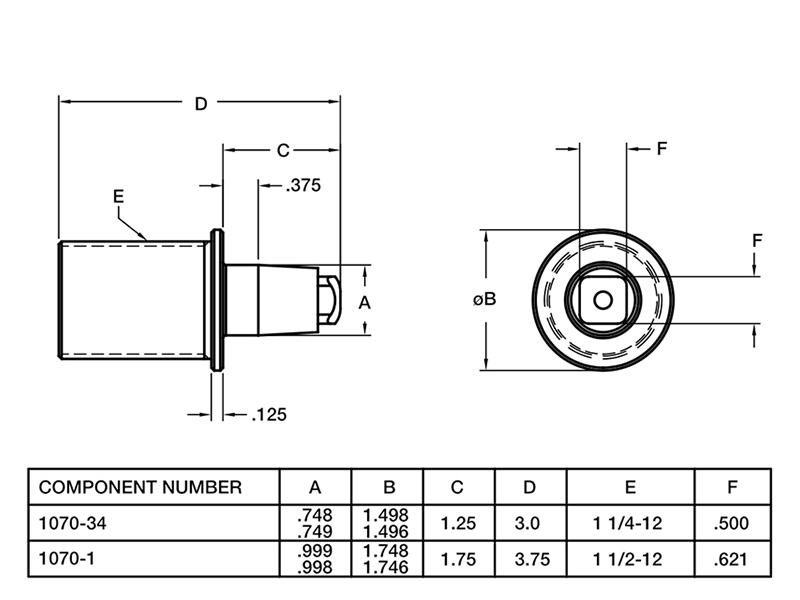
0
You have 0 items in your cart
- Home
- Tooling & Automation
- Companies & Capabilities
- Segen Quick Change
- News
- Resources
- About Us
- Contact Us
The Tooling Tech Group team provides both low-pressure and high-pressure die cast dies for machines with locking forces that range from 200 to 6,000 tons. Versed in a variety of software, our engineers focus on providing a tooling package that maximizes your process window, facilitates quick die change, simplifies tool maintenance, and ensures interchangeability of die components while our skilled toolmakers meticulously craft the dies using advanced CNC machines and other precision technology. Our purpose is to provide a highly accurate, robust die that results in consistent quality cast components. Learn more about our die cast tooling production dies and design services today.
Die cast mold maintenance is a crucial aspect of ensuring the longevity and efficiency of die casting operations. Tooling Tech Group is equipped to support your dies with regular cleaning, lubrication, and inspection that help prevent wear and tear on the mold components. By addressing any issues promptly and implementing preventive measures, including proper storage and handling practices, we can help to minimize downtime and production disruptions.
Wear and tear on the die can incur issues such as cracks, dents, or worn-out components. Our repair technicians are equipped with specialized tools and techniques to repair these issues effectively. Our state-of-the-art equipment includes a mobile laser welding system for making die repairs to mold cavity surfaces, as well as refurbishment of critical wear surfaces. We also use a mobile laser welding system to make engineering changes to mold cavity surfaces. These systems are highly precise and efficient for correcting and evaluating complex mold features.
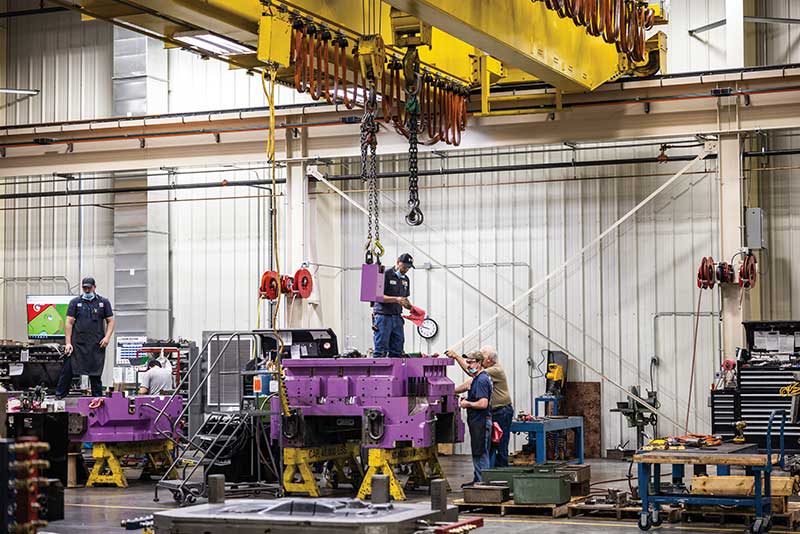
Assembly of the die components is just as important as the overall tool design. Involving inserts, cores, cavities, ejector pins, and cooling channels; all of these components must work together to produce high-quality die cast parts. Our team has years of experience in providing precisely assembled dies that meet your desired specifications.
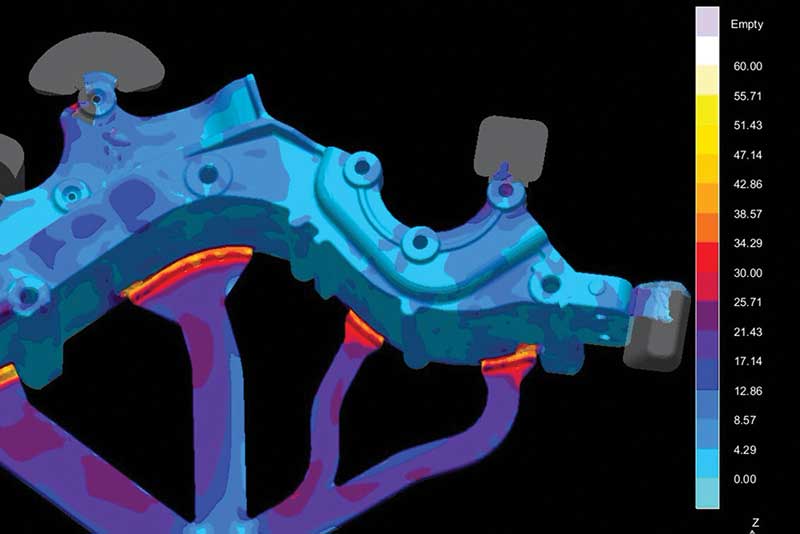
Tooling Tech Group uses flow and thermal simulation to ensure the efficiency and effectiveness of our molds. By inputting parameters such as material properties, part geometry, and injection conditions into the software, we can simulate how molten aluminum will fill the mold cavity and solidify. This information helps to identify potential defects like shrinkage or porosity prior to production, saving time and resources. Additionally, magma simulation allows us to experiment with different design iterations quickly and cost-effectively, ensuring that the final mold meets performance requirements with minimal trial and error.
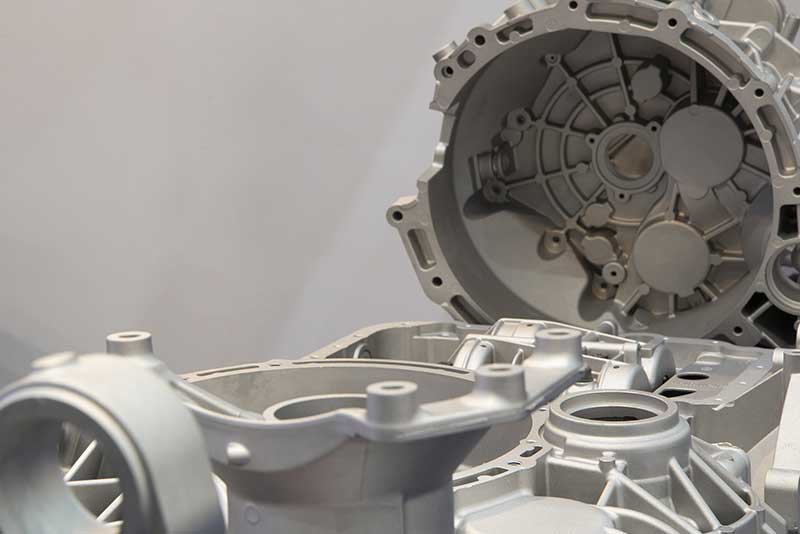
Tooling Tech Group runs die samples when customers require in order to test the functionality, accuracy, and quality of the mold before mass production begins. Through testing and analysis of these samples, adjustments can be made to ensure that the final die cast mold meets all specifications and delivers high-quality results. Additionally, die samples help streamline the manufacturing process by reducing trial-and-error iterations and minimizing costly mistakes during production.
In addition to being a standard service with our die builds, Tooling Tech Group offers tool quality verification as a stand-alone service. To verify the dimensional quality of tooling, we have a portable Romer CMM arm as well as two GOM ATOS Triple Scan high-resolution, 3D optical digitizers for automated measuring and inspection of casting dies. By utilizing these advanced tools, we can accurately measure and analyze every aspect of the mold’s geometry, surface finish, and dimensions. This combination of technologies enables the identification of potential issues, leading to improved efficiency and overall product quality.

Die spotting is essential to verify the contact surfaces between the moving side and the fixed side of a mold. Using a spotting press to apply pressure and colorant to indicate which surfaces are touching and which are not, we spot every die we build or repair to ensure the aluminum will flow properly through the mold and produce high-quality components.
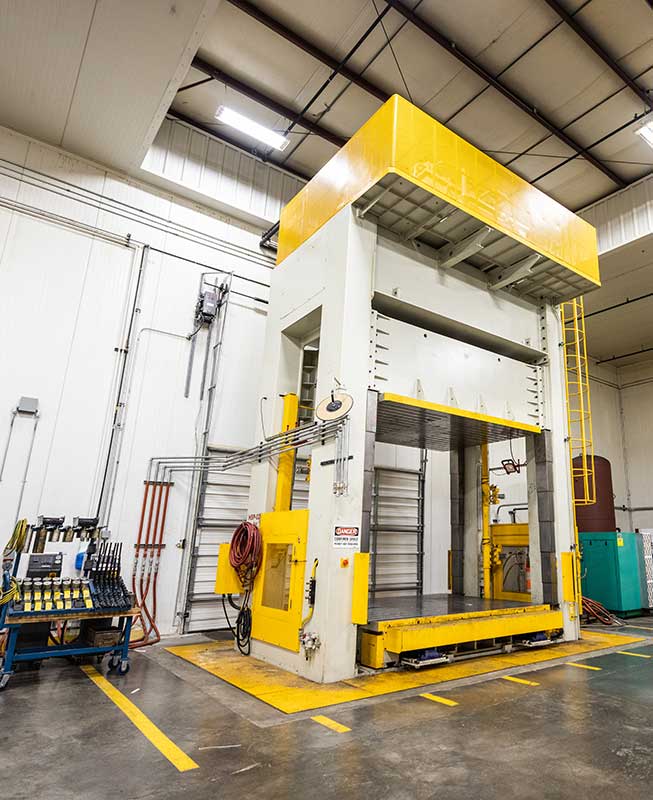
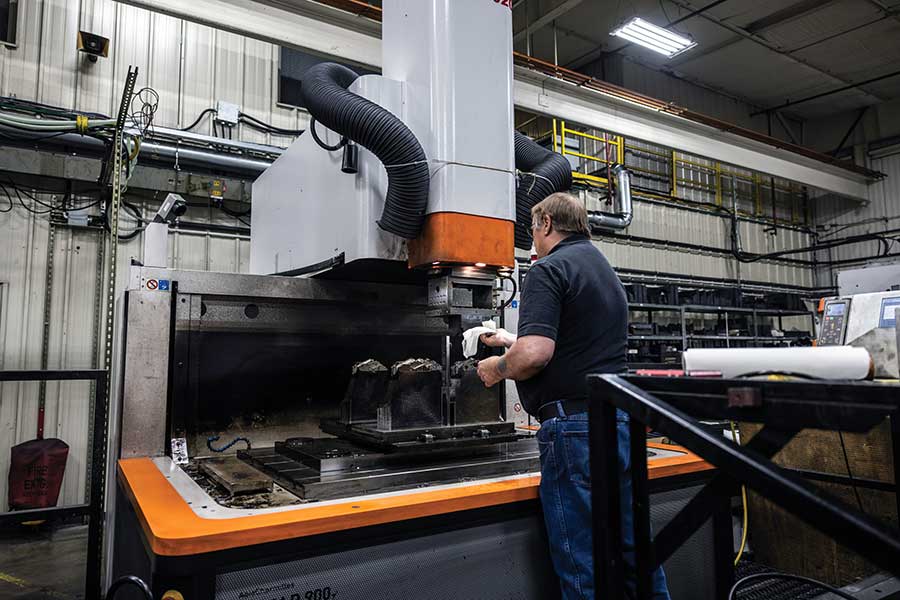
We have an award-winning history of providing jigs and fixtures that maintain tolerances down to less than a millimeter for our customers. Our engineers are experts in designing optimal solutions to hold, support and locate a workpiece for manufacturing repeatability and accuracy. Incorporating the Six Sigma strategy of Poka-yoke (mistake proofing), our fixtures eliminate the potential of producing incorrect parts along with consideration for ease of assembly, maintenance, interchangeability and end-user ergonomics.
Tooling Tech Group can provide spare components for injection molding tools, which are essential to maintaining production efficiency and minimizing downtime. These spare parts encompass a wide range of items such as the plates, pins, bushings, and blocks that help make up the mold base, as well as mold plates, mold inserts, or other components. Keeping an inventory of spare parts on hand allows you to quickly address any issues that arise during the injection molding process without causing significant delays or disruptions to your operations.
Fill out the form for more information and we will get back to you.